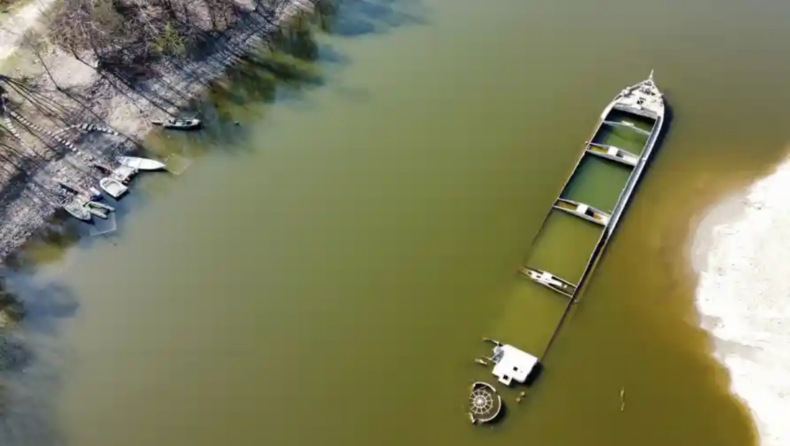Italy has declared a state of emergency in five northern regions surrounding the Po River amid the worst drought in 70 years.
o Italy declares emergency in five northern regions surrounding the Po River
o The drought is said to be the worst in 70 years.Italy, facing the worst drought in 70 years,
Italy has declared a state of emergency in five northern regions around the river amid what’s being called the worst drought in 70 years.
The drought threatens more than 30% of Italy’s agricultural produce, according to the Italian Farmers’ Association, Coldiretti.
The regions of Friuli Venezia, Emilia-Romagna, Giulia, Lombardy, Veneto and Piedmont are to be provided £31m ($38m) to serve as emergency funds to tackle the water shortage. Several municipalities across Italy have already announced water rationing.
The Italian government stated that the state of emergency is aimed at managing the dire situation with extraordinary means and powers. It said that it would take further measures to improve the situation.
It is reported that extreme hot weather and low rainfall over winter and spring have led to water shortages in northern Italy, raising concern over the effects of climate change.
Prime Minister Mario Draghi has stated that climate change was without doubt responsible for the glacier collapse in the Dolomites on Sunday, where seven people died and several others are missing.
Global warming causes changes in water bodies.
Farmers in the Po Valley claim that salty seawater is now seeping into the river, destroying their crops.
The Po, Italy’s longest river, flows eastward for more than 650 km and is the main artery that cuts through Italy’s mainland, where one-third of its food is produced.
Historically, it’s the supplier to one of the most important economic areas in Europe and has become the symbol of prosperity in northern Italy, but drought has transformed the landscape, affecting all activities connected to the river, like the production of tomatoes, watermelons, and farming. raising concerns for cheese producers who are worried that they won’t be able to feed their cows.
The drought raises broader questions about the management of water crises that experts say will become more frequent due to climate change.
The lack of rain in the future is expected to exacerbate the situation. In Milan, all ornamental fountains have been turned off. The washing of private vehicles and watering gardens has been prohibited. Several other northern Italian cities have begun rationing drinking water.
In Castenaso, the mayor has banned hairdressers and barbers from shampooing their customers twice, in order to save water.
Meanwhile, in the far north of Italy, a search continued for five Italians who went missing after the collapse of a glacier in the Dolomites. Authorities originally said that 13 people were missing, but 8 of them were later tracked down.
Drones outfitted with thermal imaging cameras were flown over the area on Tuesday in search of survivors, though rescuers had little hope of finding anyone alive.Seven people have reportedly died and eight more were hurt in an avalanche caused by the glacier’s collapse.
Among the dead were many foreigners. Prague officials reported that two Czech citizens had been killed in the avalanche.
The Italian prime minister travelled to the area on Monday and President Sergio Mattarella said the disaster was a symbol of what climate change can do to the world if left unchecked.
Experts say that Alpine glaciers have been melting slowly. The Marmolada glacier is also showing similar signs. A study by the University of Padua estimated that almost 90% of the Marmolada glacier’s volume had been lost in the past century.













